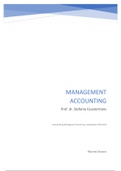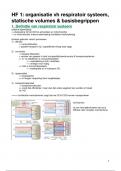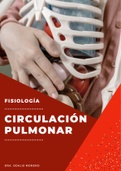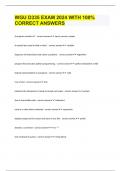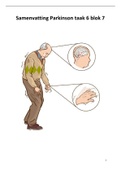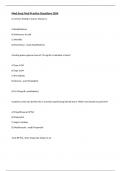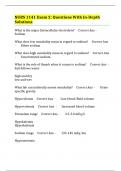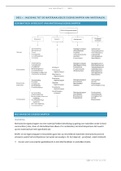Sight/seeing/eye motif
Quote Analysis
“Dearer than eye-sight" Goneril states that her Father, King Lear means more to her than her eyesight.
“Here I disclaim all my paternal care, propinquity and prosperity of blood, and as a Act of hate and ego blinds Lear to his folly and this action out of negative emotion leads
stranger to my heart and me hold thee from this for ever… thou sometime daughter.” him to banish the love he has cherished throughout his life from his youngest and
favourite daughter Cordelia
“Kent, on thy life, no more…Out of my sight!...O, vassal! Miscreant! (Laying his hand upon Again, hate and ego leads to blindness of action and to the removal of the physical
his sword) representation of truthful and virtuous blunder
“See better, Lear; and let me still remain the true blank of thine eye…I’ll tell the thou dost Kent acknowledges the blindness of the mind Lear experiences. Seeing=knowledge
evil.” and so blindness=folly
“You see how full of changes his age is…let us hit together: if our father carry authority Here it is suggested that Goneril can see the weakness of her father. Is she blind to
with such disposition as he bears…We must do something, and I’th’heat. negative emotion like her father
“Why bastard? Wherefore base? When my dimensions are as well compact, my mind as Again, its suggested that physical properties proscribe mental traits allowing for sight to
generous and my shape as true as honest madam’s issue?” determine one’s nature
“We have seen the best of our time: machinations, hollowness, treachery, and all ruinous Gloucester uses the sight motif to show the move to a darker age and how this moral
disorders follow us to our graves. Find out this villain, Edmund; it shall lose thee shift is tangible to the eye.
nothing…”
“let his knights have colder looks among you…” Another use of sight showing emotion
“I do profess to be no less than I seem; to serve him truly that will put me in trust; to love Here sight shows virtue (much how France describes Cordelia) but this time in the loyal
him that is honest; to converse with him that is wise, and says little; to fear judgement; to servant Kent who has disguised himself in simple drabs lowering his status so he may
fight when I cannot choose…” serve the master he loves.
“…you have that in your countenance which I would fain call master…. Authority.” Flattery (deception of seeing emotion?) or true emotion once again portrayed in sight
“I will perceive myself; and am bethought to take the basest and most poorest shape that Role of Shakespearean Disguise.
every penury , in contempt of man, brought near to beast; my face I’ll grime with filth, Edgar’s status is hidden in plain sight as he becomes nothing to hide his something
blanket my loins, elf all my hairs in knots, and with presented nakedness outface the winds
and persecutions of the sky.”
Animalistic Imagery
“Peace, Kent! Come not between the Dragon and his wrath. I loved her most and thought AI provides visual metaphor of power and mystic might wielded by the office of King
to set my rest on her kind nursery.” and how it is not for Kent to intervene in his rage no matter how foolish. Personally, I
think K is right in order to serve his master to the truth and morality he promises to
police.
“Truth’s a dog must to kennel; he must be whipped out when the Lady’s Brach may stand Use of AI in Fool’s cryptic maxims show how truth is sometimes hard to come across
by th’ fire and stink.” and is often unpleasant when all is revealed to be tainted
“The hedge-sparrow fed the cuckoo so long, that it’s had it head bit off by its young.” Use of AI in Fool’s cryptic maxims show how Lear’s folly in the Love Test of Act 1
demonstrates the base flattery has evaporated and only greed remains
“So out went the candle, and we were left darklings” The blindness of all present
“May not an ass know when a cart draws a horse?” Use of AI in Fool’s cryptic maxims shows how the Fool is the wisest character who
sees the reversal of relationships and seniority
“Ingratitude, thou marble-hearted fiend, more hideous, when thou show’st thee in a child, Comparison to AI shows fierceness and incivility of Goneril’s slow and silent coup
than the sea monster.”
“Detested kite! Thou liest…How ugly didst thou in Cordelia show!...O Lear, Lear, Lear! Comparison to AI shows fierceness and incivility of Goneril’s slow and silent coup
Beat at this gate, that let thy folly in (Striking his head).”
“How sharper than a serpent’s tooth it is to have a thankless child!” Lear wishes the pain of experiencing ingratitude to Goneril using AI
“…with her nails she’ll flay thy wolvish visage. Thou shalt find that I’ll resume the shape Lear wishes the pain of experiencing ingratitude to Goneril using AI
Quote Analysis
“Dearer than eye-sight" Goneril states that her Father, King Lear means more to her than her eyesight.
“Here I disclaim all my paternal care, propinquity and prosperity of blood, and as a Act of hate and ego blinds Lear to his folly and this action out of negative emotion leads
stranger to my heart and me hold thee from this for ever… thou sometime daughter.” him to banish the love he has cherished throughout his life from his youngest and
favourite daughter Cordelia
“Kent, on thy life, no more…Out of my sight!...O, vassal! Miscreant! (Laying his hand upon Again, hate and ego leads to blindness of action and to the removal of the physical
his sword) representation of truthful and virtuous blunder
“See better, Lear; and let me still remain the true blank of thine eye…I’ll tell the thou dost Kent acknowledges the blindness of the mind Lear experiences. Seeing=knowledge
evil.” and so blindness=folly
“You see how full of changes his age is…let us hit together: if our father carry authority Here it is suggested that Goneril can see the weakness of her father. Is she blind to
with such disposition as he bears…We must do something, and I’th’heat. negative emotion like her father
“Why bastard? Wherefore base? When my dimensions are as well compact, my mind as Again, its suggested that physical properties proscribe mental traits allowing for sight to
generous and my shape as true as honest madam’s issue?” determine one’s nature
“We have seen the best of our time: machinations, hollowness, treachery, and all ruinous Gloucester uses the sight motif to show the move to a darker age and how this moral
disorders follow us to our graves. Find out this villain, Edmund; it shall lose thee shift is tangible to the eye.
nothing…”
“let his knights have colder looks among you…” Another use of sight showing emotion
“I do profess to be no less than I seem; to serve him truly that will put me in trust; to love Here sight shows virtue (much how France describes Cordelia) but this time in the loyal
him that is honest; to converse with him that is wise, and says little; to fear judgement; to servant Kent who has disguised himself in simple drabs lowering his status so he may
fight when I cannot choose…” serve the master he loves.
“…you have that in your countenance which I would fain call master…. Authority.” Flattery (deception of seeing emotion?) or true emotion once again portrayed in sight
“I will perceive myself; and am bethought to take the basest and most poorest shape that Role of Shakespearean Disguise.
every penury , in contempt of man, brought near to beast; my face I’ll grime with filth, Edgar’s status is hidden in plain sight as he becomes nothing to hide his something
blanket my loins, elf all my hairs in knots, and with presented nakedness outface the winds
and persecutions of the sky.”
Animalistic Imagery
“Peace, Kent! Come not between the Dragon and his wrath. I loved her most and thought AI provides visual metaphor of power and mystic might wielded by the office of King
to set my rest on her kind nursery.” and how it is not for Kent to intervene in his rage no matter how foolish. Personally, I
think K is right in order to serve his master to the truth and morality he promises to
police.
“Truth’s a dog must to kennel; he must be whipped out when the Lady’s Brach may stand Use of AI in Fool’s cryptic maxims show how truth is sometimes hard to come across
by th’ fire and stink.” and is often unpleasant when all is revealed to be tainted
“The hedge-sparrow fed the cuckoo so long, that it’s had it head bit off by its young.” Use of AI in Fool’s cryptic maxims show how Lear’s folly in the Love Test of Act 1
demonstrates the base flattery has evaporated and only greed remains
“So out went the candle, and we were left darklings” The blindness of all present
“May not an ass know when a cart draws a horse?” Use of AI in Fool’s cryptic maxims shows how the Fool is the wisest character who
sees the reversal of relationships and seniority
“Ingratitude, thou marble-hearted fiend, more hideous, when thou show’st thee in a child, Comparison to AI shows fierceness and incivility of Goneril’s slow and silent coup
than the sea monster.”
“Detested kite! Thou liest…How ugly didst thou in Cordelia show!...O Lear, Lear, Lear! Comparison to AI shows fierceness and incivility of Goneril’s slow and silent coup
Beat at this gate, that let thy folly in (Striking his head).”
“How sharper than a serpent’s tooth it is to have a thankless child!” Lear wishes the pain of experiencing ingratitude to Goneril using AI
“…with her nails she’ll flay thy wolvish visage. Thou shalt find that I’ll resume the shape Lear wishes the pain of experiencing ingratitude to Goneril using AI

